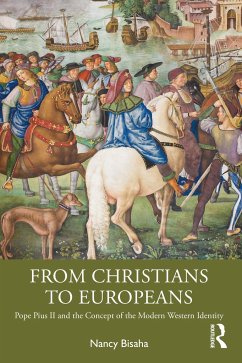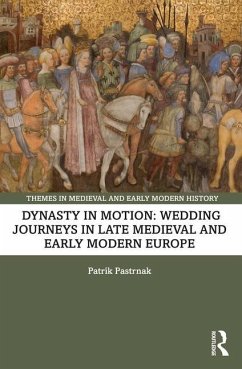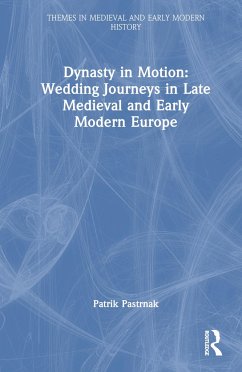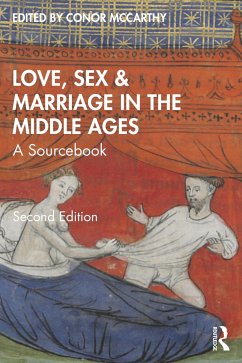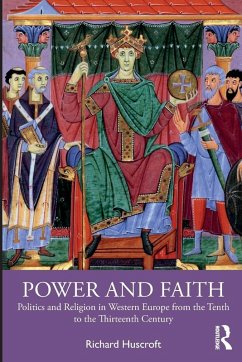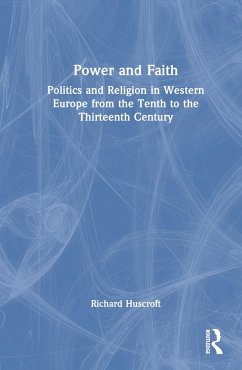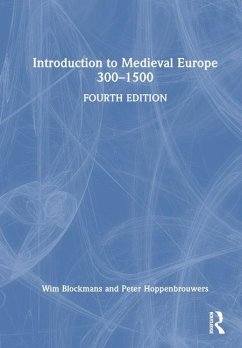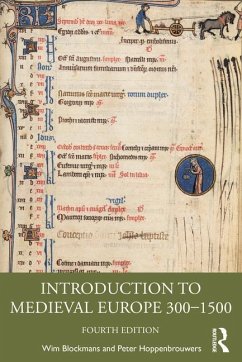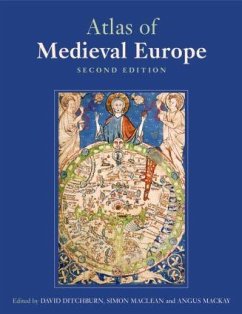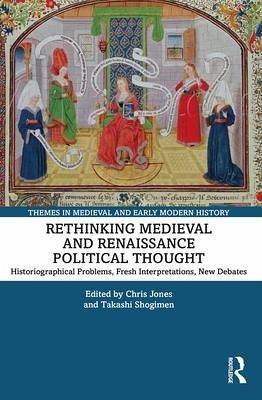
Rethinking Medieval and Renaissance Political Thought
Historiographical Problems, Fresh Interpretations, New Debates
Herausgegeben: Jones, Chris; Shogimen, Takashi
Versandkostenfrei!
Versandfertig in 6-10 Tagen
43,99 €
inkl. MwSt.

PAYBACK Punkte
22 °P sammeln!
This collection of essays, written by leading experts, showcases historiographical problems, fresh interpretations, and new debates in medieval and Renaissance history and political thought.Recent scholarship on medieval and Renaissance political thought is witness to tectonic movements. These involve quiet, yet considerable, re-evaluations of key thinkers such as Thomas Aquinas and Machiavelli, as well as the string of lesser known "political thinkers" who wrote in western Europe between Late Antiquity and the Reformation. Taking stock of thirty years of developments, this volume demonstrates...
This collection of essays, written by leading experts, showcases historiographical problems, fresh interpretations, and new debates in medieval and Renaissance history and political thought.
Recent scholarship on medieval and Renaissance political thought is witness to tectonic movements. These involve quiet, yet considerable, re-evaluations of key thinkers such as Thomas Aquinas and Machiavelli, as well as the string of lesser known "political thinkers" who wrote in western Europe between Late Antiquity and the Reformation. Taking stock of thirty years of developments, this volume demonstrates the contemporary vibrancy of the history of medieval and Renaissance political thought. By both celebrating and challenging the perspectives of a generation of scholars, notably Cary J. Nederman, it offers refreshing new assessments. The book re-introduces the history of western political thought in the Middle Ages and the Renaissance to the wider disciplines of History and Political Science. Recent historiographical debates have revolutionized discussion of whether or not there was an "Aristotelian revolution" in the thirteenth century. Thinkers such as Machiavelli and Marsilius of Padua are read in new ways; less well-known texts, such as the Irish On the Twelve Abuses of the Age, offer new perspectives. Further, the collection argues that medieval political ideas contain important lessons for the study of concepts of contemporary interest such as toleration.
The volume is an ideal resource for both students and scholars interested in medieval and Renaissance history as well as the history of political thought.
Recent scholarship on medieval and Renaissance political thought is witness to tectonic movements. These involve quiet, yet considerable, re-evaluations of key thinkers such as Thomas Aquinas and Machiavelli, as well as the string of lesser known "political thinkers" who wrote in western Europe between Late Antiquity and the Reformation. Taking stock of thirty years of developments, this volume demonstrates the contemporary vibrancy of the history of medieval and Renaissance political thought. By both celebrating and challenging the perspectives of a generation of scholars, notably Cary J. Nederman, it offers refreshing new assessments. The book re-introduces the history of western political thought in the Middle Ages and the Renaissance to the wider disciplines of History and Political Science. Recent historiographical debates have revolutionized discussion of whether or not there was an "Aristotelian revolution" in the thirteenth century. Thinkers such as Machiavelli and Marsilius of Padua are read in new ways; less well-known texts, such as the Irish On the Twelve Abuses of the Age, offer new perspectives. Further, the collection argues that medieval political ideas contain important lessons for the study of concepts of contemporary interest such as toleration.
The volume is an ideal resource for both students and scholars interested in medieval and Renaissance history as well as the history of political thought.





